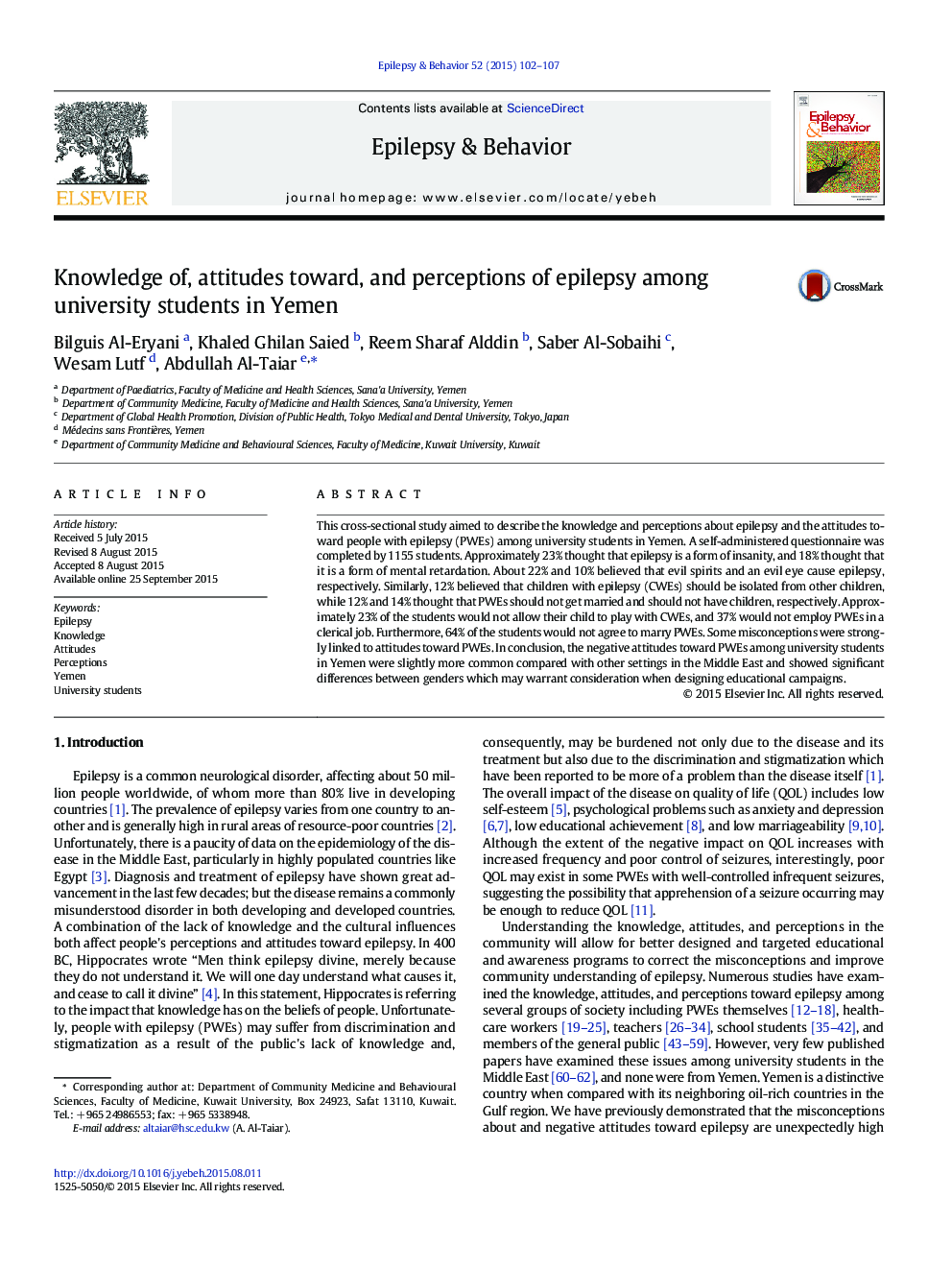| Article ID | Journal | Published Year | Pages | File Type |
|---|---|---|---|---|
| 6010376 | Epilepsy & Behavior | 2015 | 6 Pages |
â¢Knowledge and perceptions about epilepsy remain mostly unknown in Yemen.â¢Knowledge of epilepsy and attitudes toward PWEs are poor among university students in Yemen.â¢Misconceptions about the disease were strongly linked to negative attitudes toward PWEs.â¢Significant differences exist in the misconceptions of epilepsy and attitudes toward PWEs between the two genders.
This cross-sectional study aimed to describe the knowledge and perceptions about epilepsy and the attitudes toward people with epilepsy (PWEs) among university students in Yemen. A self-administered questionnaire was completed by 1155 students. Approximately 23% thought that epilepsy is a form of insanity, and 18% thought that it is a form of mental retardation. About 22% and 10% believed that evil spirits and an evil eye cause epilepsy, respectively. Similarly, 12% believed that children with epilepsy (CWEs) should be isolated from other children, while 12% and 14% thought that PWEs should not get married and should not have children, respectively. Approximately 23% of the students would not allow their child to play with CWEs, and 37% would not employ PWEs in a clerical job. Furthermore, 64% of the students would not agree to marry PWEs. Some misconceptions were strongly linked to attitudes toward PWEs. In conclusion, the negative attitudes toward PWEs among university students in Yemen were slightly more common compared with other settings in the Middle East and showed significant differences between genders which may warrant consideration when designing educational campaigns.
